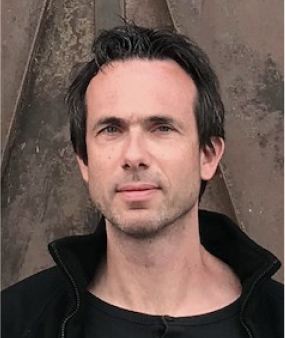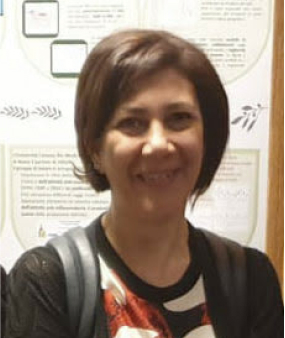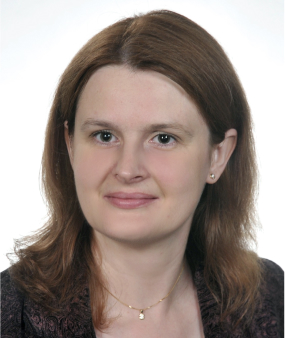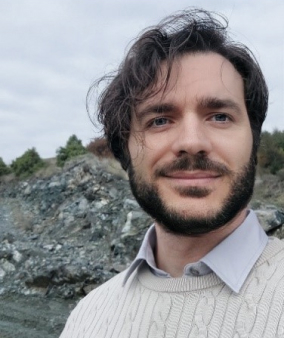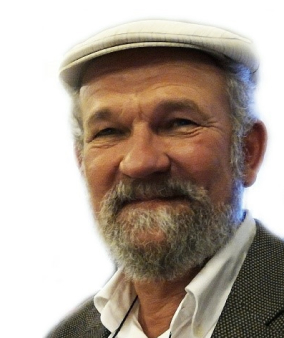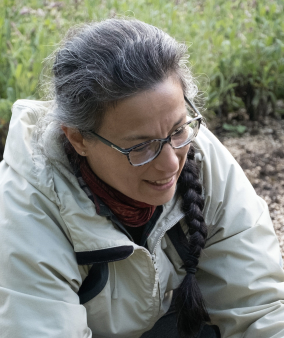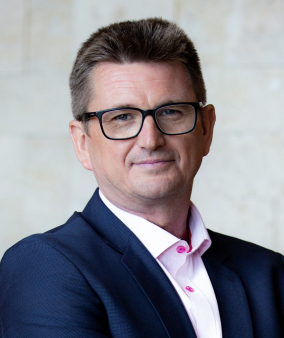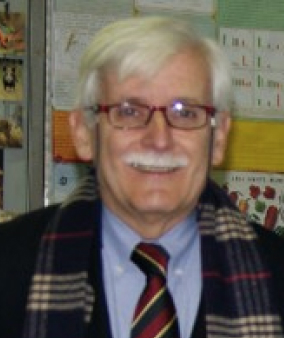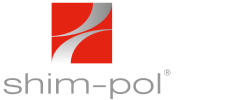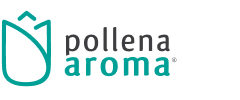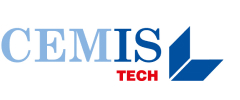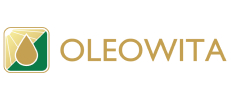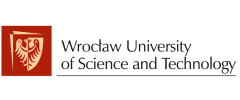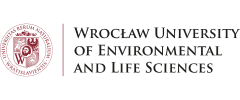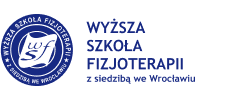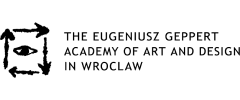Registration is Open
Wrocław, Poland 4-7 September 2022
52nd International Symposium on Essential Oils
Invitation
We cordially invite you to participate in the 52nd International Symposium on Essential Oils (ISEO 2022). This symposium series has been organized annually in Europe since 1969 (with an exception in pandemic year of 2020) in order to stimulate cooperation among scientists for the advancement of research and development into the science of essential oils and their constituents. The symposium will be held from September 4-7, 2022 in the Concordia Design in Wrocław, Poland.
This meeting will address all aspects of essential oils and related natural products ranging from breeding, cultivation, analysis, biogenesis and chemistry to biological activity and utilization.
The symposium and the supporting events, 1st Wrocław Sensory Exhibition (WroSense) and B2B industry meetings will be organized by Liquid Technologies, Wrocław University of Science and Technology, Wrocław Centre for Technology Transfer, and Eugeniusz Geppert Academy of Art and Design in Wrocław.
We look forward to meet you in Wrocław in September 2022.
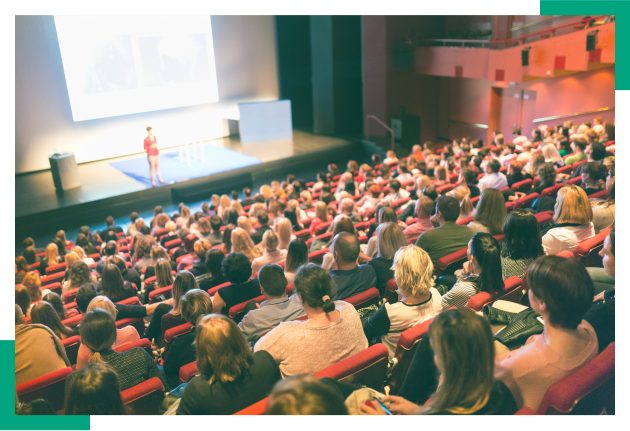
Venue
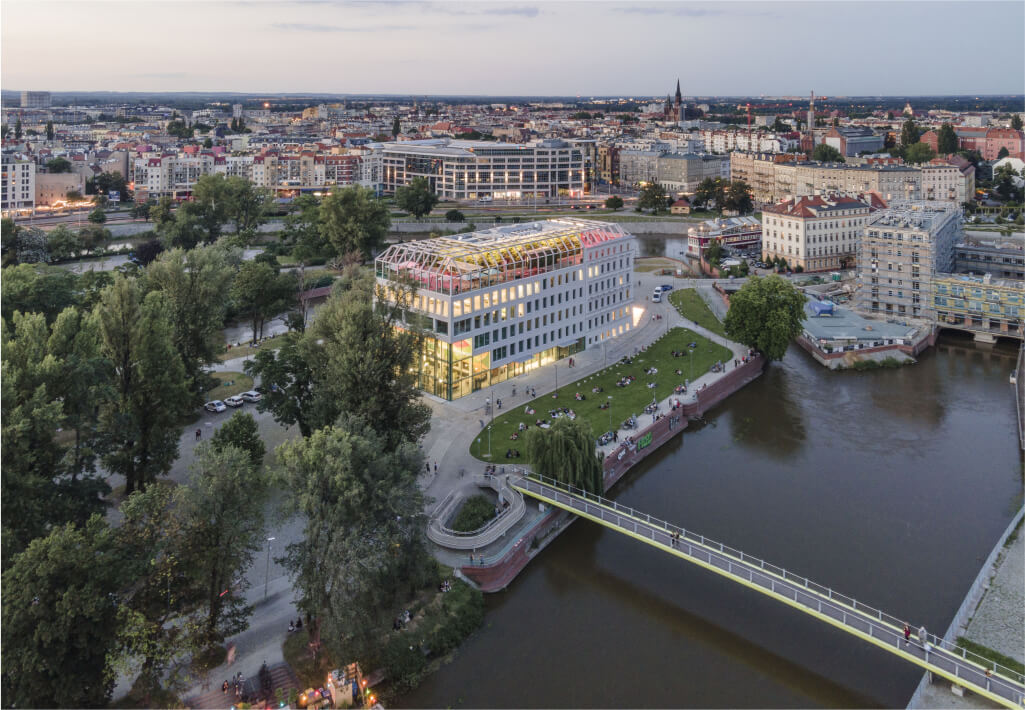
We are pleased to announce that the venue of the 52nd International Symposium on Essential Oils will be Concordia Design Wrocław.
Concordia Design has a mixed-use purpose at the junction of business and culture. It is localized in a 19th-century building that has been restored keeping the façade of the existing building and adding a contemporary extension. The building is located on one of the islands on the Oder river – the Słodowa Island, about 1 km from the Wrocław market square. Słodowa Island has a complex history. In the years 1807-1810, the island was incorporated into the city. Island’s infrastructure was comprised of residential buildings and two mills from the Middle Ages. During World War II, Nazi Germany installed field artillery there, which made it the object of frequent bombings. Only a few of the island’s buildings survived the war. In 1975, the mills of St. Klara were blown up at the direction of the president of the city, which met with huge opposition from the community. The “old” part of the Concordia Design building is the only building that has remained on the island, and the remaining area has become a meeting place for academic youth and is also a space for various cultural activities – concerts, workshops, and performances.
Schedule
15:00 – 17:00
Registration
16:00 – 18:00
Sensory exhibition opening
Opening lecture
(Concordia Design yard)
(OL-1) Natural perfumery: an olfactive journey in time and space- public own smelling experience
Clio Vidal
WALA Heilmittel GmbH
19:00 – 21:00
Get- together party
(Concordia design, 5th floor Taras Widokowy)
8:30 – 9:30
Opening Ceremony
9:00 – 12:25
SESSION 1
Session dedicated to prof. Stanisław Lochyński to honor his 70th birthday and 45th anniversary of scientific activity
Chairs: Czesław Wawrzeńczyk, Daniel Jan Strub
9:30 – 10:10
Plenary lecture
(PL-1) Chemistry of fragrant woods: Agarwood and Sandalwood
Nicolas Baldovini
Côte d’Azur University, France
10:10 – 10:55
Oral presentations
(OP-1) Review of volatile marine polyhalogenated monoterpenes from Southern African red marine algae
Michael Knott
University of Namibia, Namibia
(OP-2) An essential oil component as a building block for pheromone synthesis
Anat Zada Byers
Agricultural Research Organization, Israel
(OP-3) Inducing volatile production by plant hormones in peppermint and marjoram
Eva Zamborine Nemeth
Hungarian University of Agriculture and Life Sciences, Hungary
10:55 – 11:25
Coffee Break
SESSION 1 - continued
Session dedicated to prof. Stanisław Lochyński to honor his 70th birthday and 45th anniversary of scientific activity -continued
Chairs: Agnieszka Ludwiczuk, Györgyi Horváth
11:25 – 12:25
Oral presentations
(OP-4) The essential oil composition in medicinally relevant Salvia species: A global review
Rattray Ryan
University of Johannesburg, Republic of South Africa
(OP-5) Evaluation on Chemical Composition and Bioactivity Potential of the Thymus transcaucasicus Ronniger Extracts and Essential Oil
Burcu Sen
Istanbul University, Türkiye
(OP-6) Antimicrobial and antibiofilm activities of thyme essential oil with emphasis on the development of oral hygiene compositions
Maryna Kryvtsova
Uzhhorod National University, Ukraine
(OP-7) Eugenol as a promising natural antifungal component
Anna Biernasiuk
University of Lublin, Poland
12:25 – 14:00
Lunch
SESSION 2
Chairs: Stanisław Lochyński Nicolas Baldovini
14:00 – 14:40
Plenary lecture
(PL-2) The concept of ‘buchu’ and the ancient origins of aromatherapy
Ben-Erik Van Wyk
University of Johannesburg, Republic of South Africa
14:40 – 15:25
Oral presentations
(OP-8) – Medicinal plants of Cyprus
K. Husnu Can Baser
Near East University, Cyprus
(OP-9) Investigations on the sex-specific effect of swiss stone pine essential oil in human well-being. A pilot study
Iris Stappen
University of Vienna, Austria
(OP-10) Essential oils from Côa Valley Lamiaceae species: cytotoxicity on glioblastoma cells
Celia Cabral
University of Coimbra, Portugal
15:25 – 16:05
Medal lecture
(ML) Essential oils: a great future behind them
Carlo Bicchi
University of Turin, Italy
16:05 – 16:30
Coffee Break
16:30 – 18:00
Poster Presentation - Session A
17:30 – 19:00
ISEO PSC Meeting
SESSION 3
Chairs: Jonathan Bonello, Carlo Bicchi
8:30 – 9:10
Plenary lecture
(PL-3) Why do liverworts produce so many structurally different volatile compounds?
Agnieszka Ludwiczuk
Medical University of Lublin
9:10 – 9:40
Keynote lecture
(KL-1) F&F Ingredients: World Overview on Feedstocks & Renewability
Alain Frix
Allchemix (Belgium) / IFEAT (UK)
9:40 – 10:45
Oral presentations
(OP-11) Chemical Composition of Industrially Produced Egyptian Jasmine (Jasminum grandiflorum L.) Essential Oil Obtained by Steam Distillation
Hussein Fakhry
A. Fakhry & Co., Egypt
(OP-12) Smart solutions for improving performance of analysis of volatile compounds by gas chromatography mass spectrometry
Maciej Kochanowski
Shimpol A.M. Borzymowski, Poland
(OP-13) Influence of organic nutrients on growth, yield and essential oil composition of Patchouli
Tara Mehra
Central Agricultural University, India
(OP-14) Traits specific breeding and varietal registration in Cymbopogon genus at CSIR-NEIST, Jorhat, India
Mohan Lal
CSIR- North East Institute of Science & Technology, India
10:45 – 11:10
Coffee Break
SESSION 4
Chairs: Niko Radulović, Hussein Fakhry
11:10 – 12:25
Oral presentations
(OP-15) Organic vs Conventional Farming of Lavender: Effect on Yield, Phytochemicals and Essential Oil Composition
Mima Todorova
Trakia University, Bulgaria
(OP-16) Chamomile essential oils exert anti-inflammatory effects involving human and murine macrophages: evidence to support a therapeutic action
Carmen Formisano
University of Naples Federico II, Italy
(OP-17) Chemical and biological investigations of essential oils from Juniperus genus
Laura De Martino
University of Salerno, Italy
(OP-18) Relation between dillapiole content and insecticidal activity of Piper aduncum L. essential oil
Humberto Bizzo
Embrapa Agroindústria de Alimentos, Brazil
(OP-19) Essential oils from pineapple processing by-products through ohmic heating
Mohsen Gavahian
National Pingtung University of Science and Technology, Taiwan
12:25 – 14:00
Lunch
SESSION 5
Chairs: Humberto Bizzo, Patrizia Rubiolo
14:00 – 14:40
Plenary lecture
(PL-4) Analytical strategies for the characterization of non-volatile fraction of Citrus essential oil: applications in food and cosmetic.
Paola Dugo
University of Messina, Italy
14:40 – 15:40
Oral presentations
(OP-20) CNV and Gene Expression of Monoterpene Synthases Explain Chemotypes of Three Sage Species
Johannes Novak
University of Veterinary Medicine, Austria
(OP-21) Discrimination of the essential oils from three wild goldenrod species growing together in Quebec
Alexis St-Gelais
Laboratoire PhytoChemia, Canada
(OP-22) Essential oils analysis in light of sensory quality. A reliable tool or not?
Jacek Łyczko
Wrocław University of Environmental and Life Sciences, Poland
(OP-23) Lady Pinecone – back to nature
Krzysztof Czapski
Lady Pinecone / Pani Szyszka
15:40 – 16:00
Coffee Break
16:00 – 17:30
Poster Presentation - Session B
19:00 – 00:00
Symposium dinner
(Restaurant “Z Nurtem” on Wratislavia Ship, Bulwar Xawerego Dunikowskiego)
SESSION 6
Chairs: Johannes Novak, Éva Zámboriné-Németh
9:00 – 9:40
Plenary lecture
(PL-5) Biological activity of essential oils – not a single golden bullet loaded to that revolver?
Niko Radulović
University of Niš, Serbia
10:00 – 11:00
Young Scientist Session
(YSP-1) Microwave-Assisted Hydrodistillation of Hop (Humulus lupulus L.) Terpenes: A Pilot-Scale Study
Lorenzo Lamberti
University of Turin, Italy
(YSP-2) Involvement of serotonergic neurotransmission in the anxiolytic potential of Melissa officinalis essential oil and citronellal
Nikola M. Stojanović
University of Niš, Serbia
(YSP-3) Exploring the mechanisms of action of essential oils: how to undermine the pathogenic biofilm life cycle
Francesca Maggio
University of Teramo, Italy
(YSP-4) Chemical diversity and antifungal activity of Zataria multiflora essential oils and influence of abiotic stresses on the compositions
Ali Karimi
Julius Kühn Institute, Germany
11:00 – 11:30
Coffee Break
SESSION 7
Chairs: Iris Stappen, Hüsnü Can Baser
11:30 – 12:30
Young Scientist Session
(YSP-5) Essential Oils Diversity from the Malayan Flora: Recent Findings and Challenges
Wan Mohd Nuzul Hakimi Wan Salleh
Sultan Idris Education University, Malaysia
(YSP-6) Reuse of Food Waste: Chemical Compositions and Health Properties of Essential Oils from Several Cultivars of Sicilian Citrus aurantium L. and Citrus maxima (Burm.) Merr.
Natale Badalamenti
University of Palermo, Italy
(YSP-7) Anti-inflammatory effect and possible mechanism of action of bark essential oil of Neocinnamomum caudatum in lipopolysaccharide (LPS) stimulated murine macrophage RAW 264.7 cells
Sudipta Jena
Siksha O Anusandhan, India
(YSP-8) Cymbopogon nardus essential oil nanoemulsion against fungal infestation and aflatoxin B1 contamination of food system
Abhishek Kumar Dwivedy
Banaras Hindu University
12:30 – 12:45
Closing remarks
12:45 – 14:00
Lunch
14:30 – 18:00
City guided tour
(meeting point: the bear, Main Town Square)
Abbreviations
OL Opening Lecture
PL Plenary Lecture
KL Keynote Lecture
ML Medal Lecture
OP Oral Presentation
YSP Young Scientist Presentation
PP Poster Presentation
Plenary speakers
Keynote Speaker
ISEO 2022 Medal of Honor Recipient
Permanent Scientific Committee
Nicolas Baldovini
University Côte d’Azur, France
Hüsnü Can Baser
Near East University, Cyprus
Carlo Bicchi
University of Turin, Italy
Humberto Bizzo
Embrapa Food Technology, Brazil
Jonathan Bonello
IFEAT, UK
Fatih Demirci
Anadolu University, Turkey
Jan Demyttenaere
European Flavour & Fragrance, Belgium
Adam F. Feyaerts
KU Leuven, Belgium
Ana Cristina Figueiredo
University of Lisbon, Portugal
Toshio Hasegawa
Saitama University, Japan
Györgyi Horváth
University of Pécs, Hungary
Michael Keusgen
The Philipps University of Marburg, Germany
Eisuke Kuraya
National Institute of Technology, Okinawa College: Nago, Japan
Stanisław Lochyński
Wrocław University of Science and Technology, Poland | Institute of Cosmetology, Wrocław College of Physiotherapy
Prof. Agnieszka Ludwiczuk
Medical University of Lublin, Poland
Luigi Mondello
University of Messina, Italy
Johannes Novak
University of Veterinary Medicine, Austria
Niko Radulović
University of Niš, Serbia
Patrizia Rubiolo
Universtity of Turin, Italy
Iris Stappen
The University of Vienna, Austria
Daniel Strub
Wrocław University of Science and Technology, Poland
Sandy Van Vuuren
University of the Witwatersrand, South Africa
Alvaro Viljoen
Tshwane University of Technology, South Africa
Éva Zámboriné-Németh
Corvinus University of Budapest, Hungary
Local organizing committee
Lucyna Balcerzak
Wrocław University of Science and Technology
Stanisław Lochyński
Wrocław University of Science and Technology, Poland | Institute of Cosmetology, Wrocław College of Physiotherapy
Marta Płonka
Eugeniusz Geppert Academy of Art and Design
Anna Pytel
Wrocław Centre for Technology Transfer at Wrocław University of Science and Technology
Alicja Karolina Surowiak
Wrocław University of Science and Technology
Arkadiusz Szydełko
Wrocław University of Science and Technology | Liquid Technologies
Agnieszka Turyńska
Wrocław Centre for Technology Transfer at Wrocław University of Science and Technology
Daniel Jan Strub
Wrocław University of Science and Technology | Liquid Technologies
Bartosz Urbanek
Liquid Technologies
Maria Strub
Liquid Technologies
Agnieszka Szydełko
Wrocław Medical University
Daria Kaczmarczyk
Institute of Cosmetology, Wrocław College of Physiotherapy
Beata Szmigiel-Merena
Institute of Cosmetology, Wrocław College of Physiotherapy
Anna Gliszczyńska
Department of Food Chemistry and Biocatalysis, Wrocław University of Environmental and Life Sciences
Local Honorary Committee
Cezary Przybylski
Marshal of Lower Silesia Voivodeship
Jacek Sutryk
President of Wrocław
Prof. Arkadiusz Wójs, DSc, PhD, Eng.
Rector of Wrocław University of Science and Technology
Prof. Jarosław Bosy, DSc, PhD, Eng.
Rector of Wrocław University of Environmental and Life Sciences
Prof. Andrzej Czamara, DSc, PhD
Rector of Wrocław College of Physiotherapy
Prof. Wojciech Pukocz
Rector of Eugeniusz Geppert Academy of Art and Design
Prof. Piotr Młynarz
Dean of Faculty of Chemistry of Wrocław University of Science and Technology
Registration fees
Symposium starts in
Full participant
€400
€350 (Before 1.07)
€450 (On-site)
Student
€300
€250 (Before 1.07)
€350 (On-site)
Accompanying
€200
€150 (Before 1.07)
€250 (On-site)
Symp. Dinner
€70
Excursion
€20
Registration is required for all conference participants preferably until 30 June 2022. The registration fee for participants includes: access to the scientific sessions, symposium materials, abstract book, get-together party, three lunches, coffee and snacks during symposium breaks.
Cost of accompanying persons includes: three lunches, social events, and get-together party. Excursions will be paid separately.
If you require an invitation letter please visit Letter of Invitation / Visa Requirements page.
Payment method
Registration fees can be paid only by bank transfer (invoiced, an invoice will be sent via e-mail after the registration)
Cancellation policy
Requests for refunds must be submitted in writing to the Event management team (email: office@iseo2022.pl).
- Cancellations received by July 15th, 2022 (11:59 pm CET) will receive full fee minus EUR 25,– as administrative cost.
- Cancellations received after July 15th, 2022 (11:59 pm CET) or no-shows will receive no refund of the conference fees.
Sponsors

